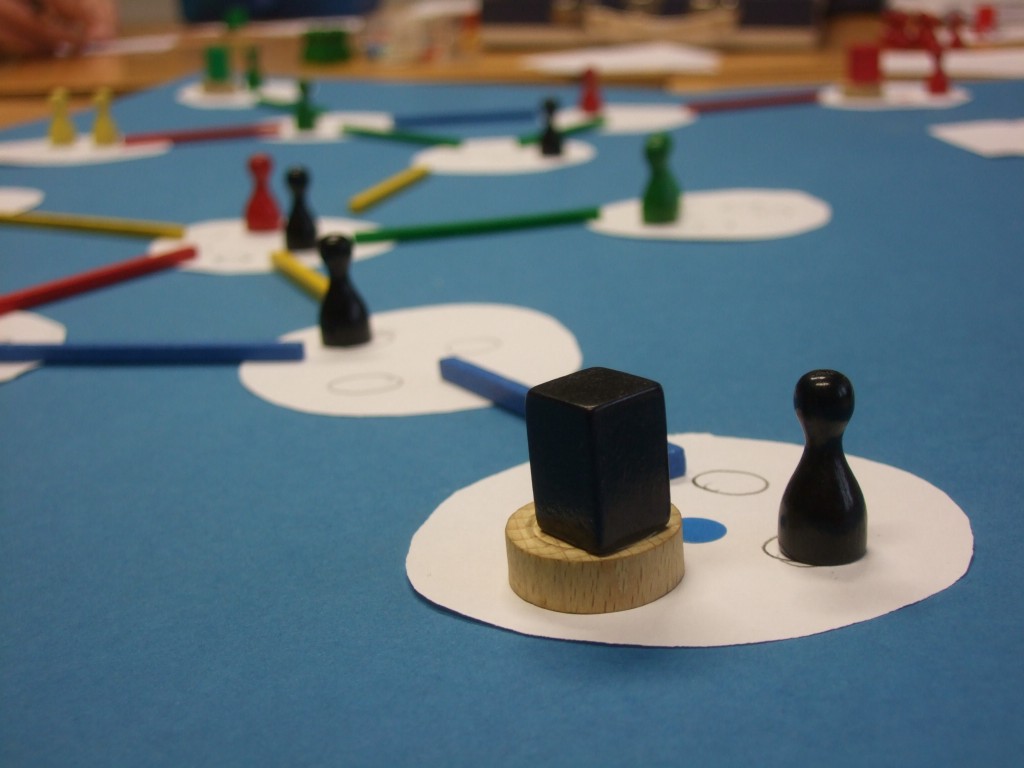Gamify Your Financial Choices For Moments that Matter
Win, win, win.

My husband and I love two things: playing games and eating at restaurants. Playing games is no trouble: it’s usually free, or approaching free, it brings us closer together, and it usually teaches us something new about our personalities. Win, win, win.
Eating at restaurants is also fun. It saves us a little bit of cooking time, and brings us together, but it gets pricey. Despite being able to technically afford it, we agreed a few months back that we needed to cut back, because all told we were eating out eight-ish meals a week. That was money that would better be spent elsewhere, especially since we actually like cooking when we bother to do it.
The first few months of “planning to eat out less” didn’t go so well. Sure, there were times when we ate in, but at the end of the month, we’d notice that all those “just this once” splurges had kept our restaurant budget about even with no dip at all. This got me thinking about the way we chose to eat out — the “point of no return.” For us, I had always thought that whenever both of us agreed to eat out, that was our point of no return. If only one of us demonstrated some will-power in that moment, we’d successfully eat at home.
In conversation with my husband, I realized that that the end was in sight much earlier. Both of us relied on the other for willpower to resist the pull of restaurant attendance. If anyone even whispered “eating out tonight,” we were goners.
When we realized this, however, we discovered what could free us. Instead of constantly wishing we weren’t eating out as much, we made that moment of “suggestion” the thing we tried to avoid. Here’s the game we came up with: every person who suggests that we go out to eat gets two points. You get one point if you go out to eat on your own, like at work, because you obviously suggested it to yourself somehow (we made an exception for required work-related meals). Whoever has the fewest points at the end of the month wins — in our case, $30 toward some random purchase they felt like making.
All of a sudden, what used to be a toilsome effort to avoid restaurants while still ending up eating out became a waiting game. We would wait for the other person to “fold,” offer to go out, but when neither of us did, we went to the kitchen and started cooking. It was amazing; our stubborn pursuit of $30 that was already our money was enough to make us bother to cook more. I also mean way more — we went from about eight meals out a week per person to about two per person. Huge savings in money (even with slightly elevated grocery bills) and generally happier because we didn’t feel like we were “failing” like we had previously.
I’m very inspired by this experience to look at financial choices in a different light. Sometimes, you know as soon as you walk in a store that there will be purchases you don’t want on your credit card afterwards; the solution isn’t to go in and test your mettle! It’s not going in the store at all! Obviously, this is harder if you aren’t competing against someone else, but I see no reason why you couldn’t make your accountability game coincide with a friend or a sibling; want to stay in with friends instead of going out drinking? Make a pact that whoever suggests going out gains points, and whoever invites people over to their place for a cheap evening in loses points. Instant motivation.
Non-competitive people will probably not “get” this concept, on the “trying to not be the first person to fold” front, but they’ll still sympathize with how some of our financial decisions start long before we actually hand over the cash. If there’s an area where you’d like to reduce spending, throw some creative thought at when the cash is truly spent — think about how you can remind yourself in that moment, not right at the register, of your resolve to spend less. It might not be a competition: it might be a sticky note on a mirror, or a buzzing reminder on your phone. If you are anything like me, constantly putting your willpower to the test just drains the bank account; finding ways to remove the temptation ahead of time might be just what you need.
Laura Marie is a teacher and writer in Ohio; she blogs about trying other people’s recipes and learning their stories at www.recipeinabottle.com.
Support The Billfold
The Billfold continues to exist thanks to support from our readers. Help us continue to do our work by making a monthly pledge on Patreon or a one-time-only contribution through PayPal.
Comments